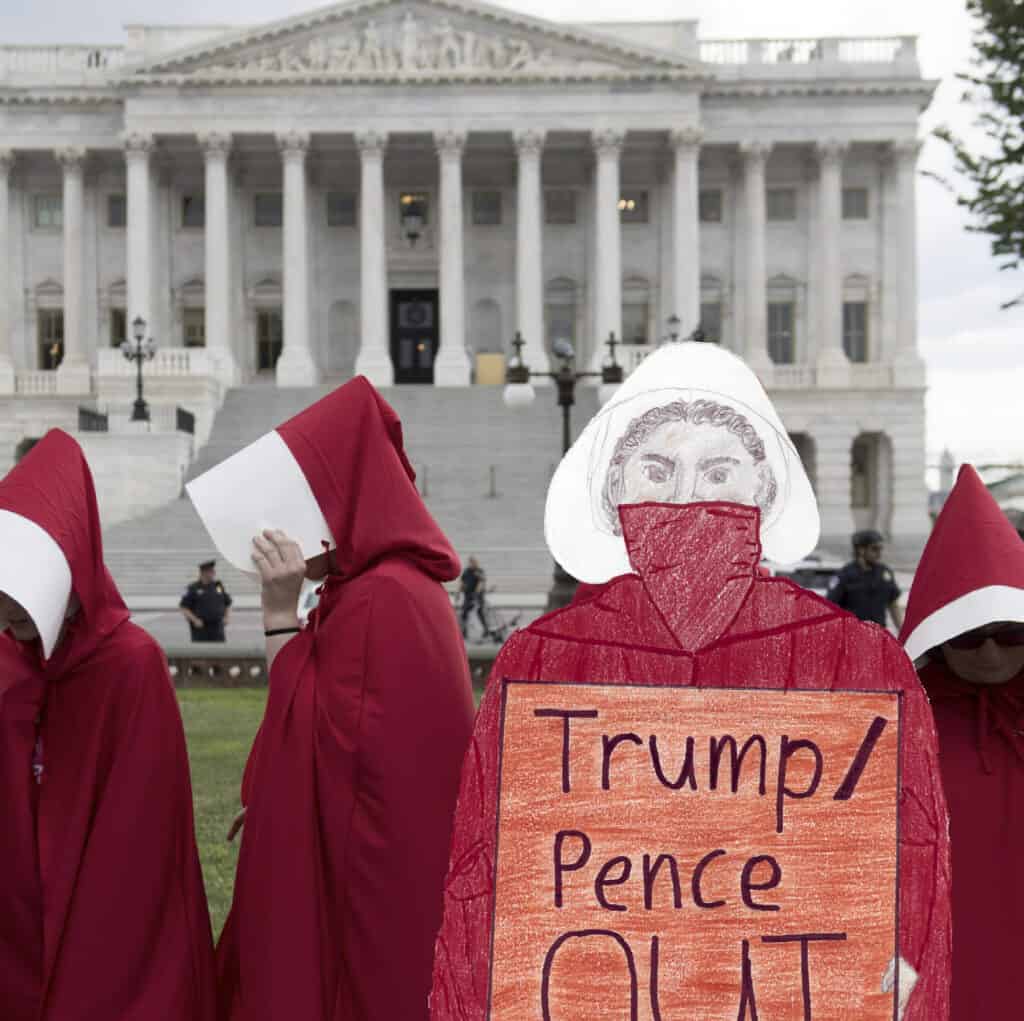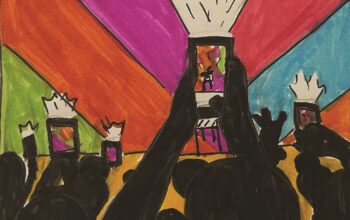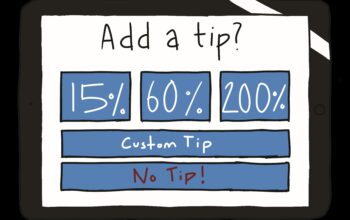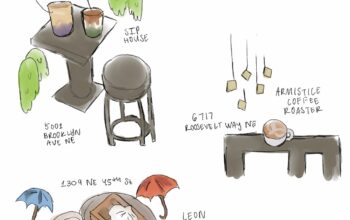
NOTE: Since this article, Amy Coney Barrett was confirmed to the Supreme Court on October 26th.
After the passing of Justice Ruth Bader Ginsburg in late September, President Donald J. Trump nominated Amy Coney Barrett, a lower-court federal judge since 2017, for the U.S Supreme Court.
President Trump was on a fast-track to appoint Judge Barett, and she was confirmed just one week before the presidential election. Coincidence? Not exactly. The condition and environment under which Judge Barrett was confirmed could not have been a more obvious sign of the president’s desperation.
The Supreme Court, now six conservatives and three liberals, is not only going to shape the future of law but could impact the presidential election’s final result. If the two presidential candidates deadlock or tie for votes, the election fight could move to the Supreme Court, where, because of Judge Barrett’s confirmation, President Trump could win favor.
“In filling Judge Ginsburg’s seat the stakes are extraordinarily high for the American people, both in the short term and for decades to come,” says Senator Diane Feinstein of the Senate Judiciary Committee at Barrett’s Confirmation. Feinstein continues, saying, “Most importantly, health care coverage for millions of Americans is at stake with this nomination.”
Senator Patrick Leahy had a similar message. “This process is a caricature of illegitimacy. The fact we had a nominee before Justice Ginsburg was even buried, in order to jam this nomination before the election… that is a mark of the United States Senate, and will be a mark of a process of a callous, political, power grab.”
Amy Coney Barrett is an elected member of The American Law Institute, a research and advocacy group for judges, lawyers, and legal scholars. She is also a member of the conservative Federalist Society, and interrelated to a Christian group called People of Praise, an extreme faith community that Barrett was raised in.
During the hearings, Judge Barrett did not confirm or deny questions on her ruling of abortion rights. She has voted twice for abortion restrictions, once, in which she voted against a law, where the Seventh Circuit Court of Appeals voted to barricade parental consent for minors in Box v. Planned Parenthood of Indiana and Kentucky Inc. During Commissioner of the Indiana State Department of Health v. Planned Parenthood of Indiana and Kentucky Inc., she was for abortion restrictions. She has noted that she believes that life begins at conception.
The new opinions that arose with Judge Barrett’s nomination are linked to a strong controversy among women’s identification. Whether it was in society, in government, or in the economy, her rise as a judge caused an outrage on the entire spectrum of feminism, and women alike. And, as Diane Feinstein said, the shoes of a notorious leader of women’s rights are most difficult to fill. By standing in RBG’s place, it does not necessarily mean that she is carrying the same values as her predecessor, and could possibly even begin to move in the opposite direction.
Judge Barrett assimilates the idea of feminism, as a working mom, and a “trailblazer” for women ahead, and yet continues to openly diminish other women’s liberty, including women of color, and women in the LGBTQ+ community. For instance, in multiple cases, she has ruled against environmental protection, like in the 2018 case in Illinois, where she signed to construct on a wetland, or this year, when she ruled against plaintiffs for parks in Chicago. This may seem unrelated to feminism, but environmental deterioration has a much larger impact on women than anyone else. Barrett also constantly denies the improvement of allocation of birth control, thus working towards yet another restriction on reproductive rights. She has proved time and time again that there is nothing inherently feminist about just being a female. Especially a female in power.
Many, many things are at stake with this confirmation, and unfortunately, could put many Americans in danger.
David Grosskopf, a Language Arts teacher at Roosevelt High School, says, “The timing of this nomination fits the pattern of Senate Majority Leader Mitch McConnell’s work to overhaul the federal judiciary, slow-walking and often blocking nominations under a Democratic president, and rushing through nominations under a Republican president,”
“Empowered Democrats are likely to respond by putting aside other norms, such as the Senate filibuster and the nine-member count on the Supreme Court,” Grosskopf continues. The Senate filibuster is a maneuver to block an issue of law from being brought to a vote. Often, filibusters are used as a way to delay or block debates from occurring. The nine-member court, on the other hand, is how many justices make up the Supreme Court. The number has often fluctuated and is decided by the Congress. Changing the number of seats on the Court can be used to change the ideological balance of the Court, and to counter previous nominations or decisions.
Grosskopf says, in that the future, “Bipartisan votes of the past will grow ever rarer. I think things will get worse before they get better. We need to support a John Lewis Voting Rights Advancement Act that will help us achieve the one person, one vote we’ve fought so long to win.” The John Lewis Voting Rights Advancement Act, or the Civil Rights Act, was passed in 1964.
“The Act outlawed discrimination on the basis of race, color, religion, sex, or national origin, required equal access to public places and employment, and enforced desegregation of schools and the right to vote.”
On October 17, 2020, thousands of protesters stood outside of the Nation’s Capital, as a rally against President Trump’s nomination of Judge Barrett, as well as the President’s leadership leading up to the election. Signs read “Trump-Pence Out Now”, which blatantly demonstrated the desire to vote against both President Donald J. Trump and Mike Pence in the upcoming election.
Women wearing red handmaid’s costumes stood among the protesters. The costumes were a poke at the similarities between the presidency, the nomination of Barrett, and the show, The Handmaid’s Tale, which depicts a totalitarian state in which women are viewed as property. {Note: The show was also falsely accused of being based on People of Praise, the network of Christian communities that Judge Barrett is infamously linked to. The origins of the show are not, contrary to popular belief, from the group.} And yet, the core idea is still there. Judge Barrett will, if repeating her history, push for radically conservative restrictions and laws, which will then, catalyze a plummet in women’s rights.
And moving backwards in 2020? It seems too bad to be true.
It is likely that whether she is confirmed or not, the reaction will be explosive. Judge Barrett has created an environment that likely is going to be increasingly polarized the closer we get to the election.


